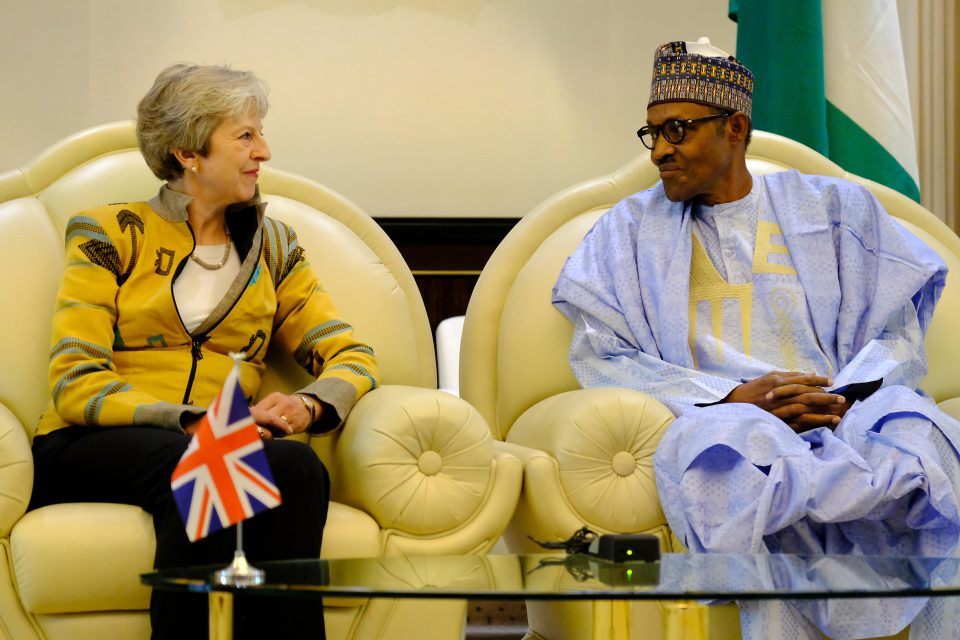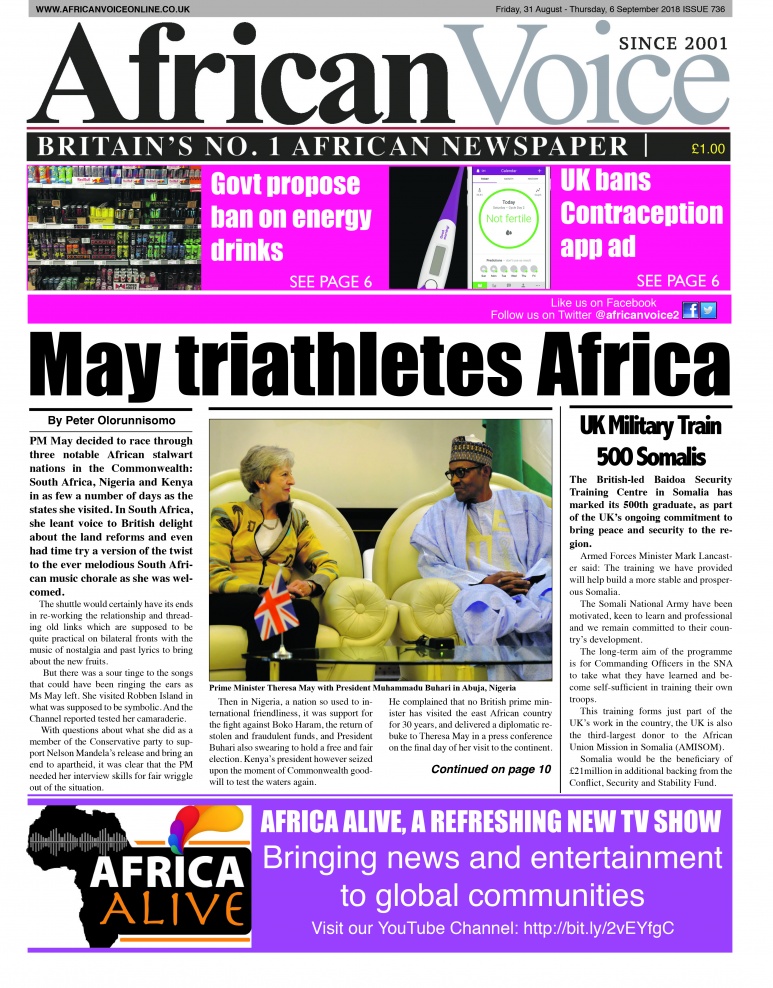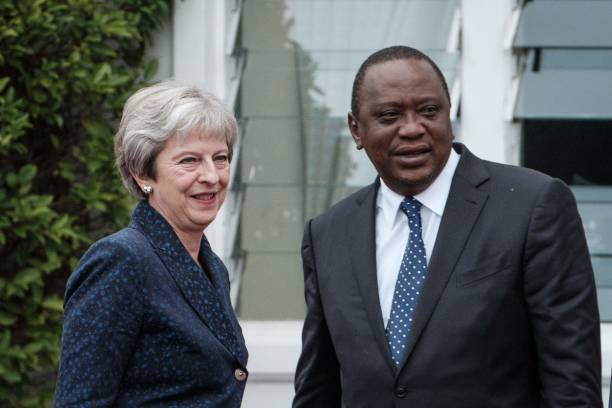By Peter Olorunnisomo – PM May decided to race through three notable African stalwart nations in the Commonwealth: South Africa, Nigeria and Kenya in as few a number of days as the states she visited. In South Africa, she leant voice to British delight about the land reforms and even had time try a version of the twist to the ever melodious South African music chorale as she was welcomed.

The shuttle would certainly have its ends in re-working the relationship and threading old links which are supposed to be quite practical on bilateral fronts with the music of nostalgia and past lyrics to bring about the new fruits.
But there was a sour tinge to the songs that could have been ringing the ears as Ms May left. She visited Robben Island in what was supposed to be symbolic. And the Channel reported tested her camaraderie.
With questions about what she did as a member of the Conservative party to support Nelson Mandela’s release and bring an end to apartheid, it was clear that the PM needed her interview skills for fair wriggle out of the situation.

Then in Nigeria, a nation so used to international friendliness, it was support for the fight against Boko Haram, the return of stolen and fraudulent funds, and President Buhari also swearing to hold a free and fair election. Kenya’s president however seized upon the moment of Commonwealth goodwill to test the waters again.
He complained that no British prime minister has visited the east African country for 30 years, and delivered a diplomatic rebuke to Theresa May in a press conference on the final day of her visit to the continent.
He was pleased she had “found time” to visit and struggled to remember Boris Johnson’s surname at the culmination of a three-day trip aimed at boosting Britain’s trade and diplomatic presence in the country.
The president began proceedings by saying he was glad May had “honoured our invitation to come and see for yourself our country and continent that has changed in the last nearly four decades since a UK prime minister visited”.
As the diplomatic rating of Kenya seemed to have fallen to attract and Prime ministerial visit despite historic links between the two nations, the east African country has increasingly turned to China and the US for support and investment.
Ms May however cited “the number of visits that the former foreign secretary made just last year to Africa” as an example of the UK’s commitment to the continent.

Appearing at the state house in Nairobi in a joint press conference with May, Kenyatta was asked about an agreement to allow stolen funds in Britain to be returned to Kenya to fund health, education and other development projects.
He said: “Last year if you recall the foreign secretary – then Boris, erm, Boris, Boris Johnson – the bicycle guy … Boris Johnson was here with ambulances. These ambulances were bought courtesy of funds that had been seized, returned and utilised to buy ambulances which were distributed across the country.
“I believe this only strengthens that and the ability of our two countries and legal systems to be able to work together to ensure that any assets that may have been acquired in the United Kingdom – that are associated with corruption or any other such crime – are successfully returned and put to use for the benefit of the people of the republic.”
The president, clearly signalled the desire for Kenya to be taken more seriously on the international stage, said that he hoped there would be more visits, adding that “despite the fact there hasn’t been a British prime minister, there has always been a constant dialogue between the two countries, the two governments”.
Kenyatta went on to argue that Kenya was keen to seek investment from anywhere in the world, a few days after returning from the US where he met President Donald Trump and shortly before he visits China. He said that the country was “keen to seek friends across the world” and that “this is the basis of the discussions we’ve had with the prime minister today, as with President Trump and as we shall continue with China.”
May said that she was delighted to be visiting Kenya and said that she would take away memories of the continent’s unforgettable “vibrancy and beauty”. She added “the UK is already the largest foreign investor in Kenya” and promised that “as Britain prepares to leave the European Union we are committed to ensuring a smooth transition” and promised that Kenya would retain its duty-free quota access to the UK market.
Kenyatta added that he believed Brexit would have a neutral impact on Kenya. “Brexit is not going to dent our ability to further strengthen and deepen trade and investment between two countries” and “ I don’t see Brexit as meaning anything detrimental to trade ties we already have”.
A fallout of these visits clearly indicates the greater urgency to reinstate the Commonwealth to its former glory and give diplomatic reality to the status of the African nations who have since moved on developmentally during the United Kingdom’s ‘marriage’ to the EU.
Kindly follow us on twitter:@AfricanVoice2









